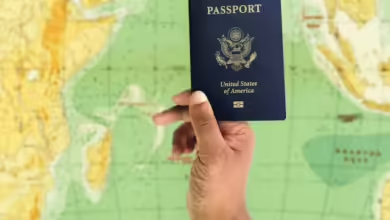Families of captives who are not expected to be freed from Gaza during the current ceasefire
Since October 7, when Hamas terrorists abducted her brother, sister-in-law, and their two little children from their homes and carried them into the Gaza Strip, Ofri Bibas Levy has been plagued by nightmares.
She sees her family who are in captivity in such visions, everyone save her brother Yarden. That unintentional exclusion could be a reflection of her hardship, since only women and children are anticipated to be freed from captives during the four-day cease-fire that began on Friday between Israel and Hamas.
For the time being, all of the men and several women will be held hostage in Gaza. It was unclear whether the release of every kid was anticipated. 24 prisoners were liberated by Hamas on Friday, including 10 Thai nationals, 1 Filipino, and 13 Israeli women and children.
The family are placed in an inhumane predicament by this arrangement. Who is going to emerge and who isn’t? Bibas Levy enquired. “My brother and many others stay, but the children leave?” Those let free in the first release did not include her family.
Numerous people whose relatives are detained will benefit from the agreement, as will the Palestinians in Gaza who have been living in appalling circumstances and under constant bombardment for weeks.
However, under the existing agreement, only a small percentage of families will be reunited due to the approximately 240 hostages held by militants. There is a chance that the deal may be extended since Israel has promised to add a day to the ceasefire for each ten prisoners who are released.
However, a lot of families are anticipated to be forced to go through the agony of not knowing what happened to their loved ones.
Israelis are enthralled with the situation of the captives, who include women, men, newborns, toddlers, and elderly people. Families of the detainees have started a campaign to liberate their loved ones, which has touched many people’s hearts and increased pressure on the Israeli government to reach agreements and make compromises in exchange for their release.
The government has promised to resume combat when the present ceasefire ends, but pressure from these groups and the strong public support shown by the families may compel it to prolong the cease-fire.
Getting all of the captives free, particularly the military, could not be easy. The hostages are seen by Gazan militants as a vital negotiating tool in their conflict with Israel.
The head of the terrorist organization Islamic Jihad, which is associated with Hamas, said on Friday that captured Israeli troops would not be released until Israel had liberated all Palestinian captives.
Bibas Levy has halted her life in order to focus on advocating for her family’s release; her nephews, who were among the youngest people kidnapped, were 4 and 10 months old. Two months before to Hamas’ assault, the occupational therapist who was designated for relocation from a town in southern Israel said she would continue to fight until all of her family members returned.
Dani Miran, whose son Omri was kidnapped, has been worried about his son’s safety. He’s been without a sign of life for seven weeks, and the awful uncertainty is causing him distressing thoughts.
“My son is not listed. His age is forty-six. and I hope that his health allows him to handle all of the hardships there, that they did not injure, torment, or act in an inhumane manner against him,” Miran said.
The announcement of a settlement has caused mixed feelings in many families, causing them to feel both optimism for potential future releases and despair when they don’t think their loved ones would be liberated.
It is my hope that they will all return, and I think they will all. Yaakov Argamani, whose daughter Noa, 26, was kidnapped together with scores of other young people from a music event that came under assault, said, “But we must have patience, and just be strong.”
Numerous families have expressed that the ups and downs of the discussions are too much for them to handle, thus they are unable to listen to the news. After weeks of erratic discussions, the new agreement seemed set in stone until a last-minute issue caused a one-day postponement.
“It resembles a rollercoaster,” said Eyal Nouri, whose 72-year-old aunt Adina Moshe was one among the people freed on Friday. Nouri had before said that he did not think she would be released. Said, Moshe’s spouse, was slain on October 7.
According to Nouri, many people’s nightmares won’t cease even if their relatives are freed.
Following the happiness of being reunited, the liberated individuals will have to deal with the pain of their imprisonment, the loss of loved ones, the devastation of their towns, and their war-torn nation.
“She is devoid of everything. No town, no clothing, no spouse, no home. Nothing, Nouri remarked. She will have to start again at the age of 72 after being freed. Our lives are not at all same.







